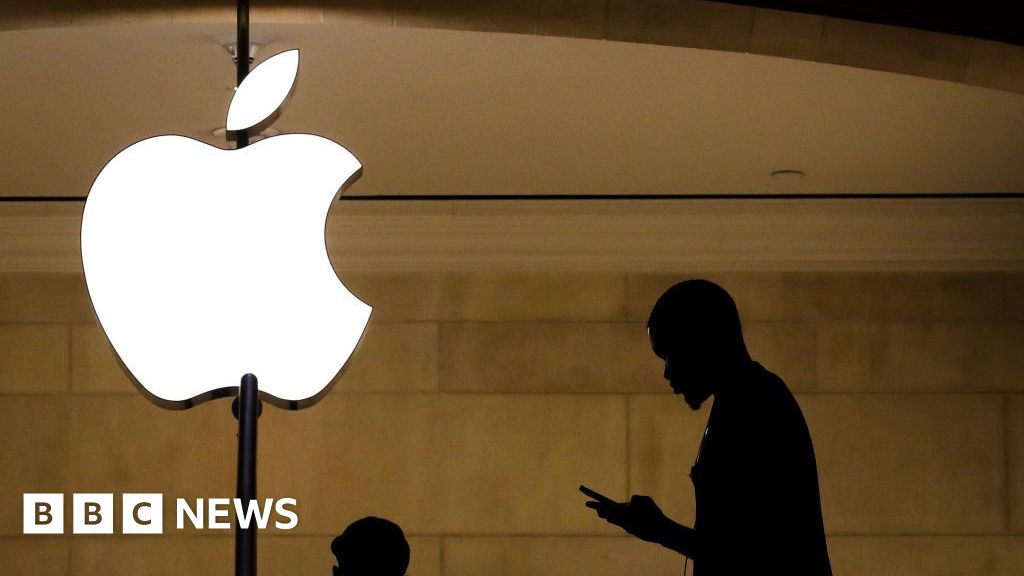
Photo by Drew Angerer/Getty Images
Democrats and Republicans finally agreed on an infrastructure deal, something the market desperately wanted.
Or did it? The remarkable aspect of the announcement of a bipartisan infrastructure bill agreement is that there wasn’t much market reaction at all.
Yes, the
got a bit of a bump, and the
ended at a high, but it’s done that 30 times this year. But there were no fireworks in the bond market, and the currency markets were quiet, too.
True, the agreement still has to go through the process of becoming law, and that’s easier said than done. But given the monthslong behind-the-scenes maneuvering, there’s a decent chance the legislation will make it to the finish line.
One could argue that infrastructure was already priced in, but the announcement wasn’t greeted with sell-the-news behavior, either. So you’re left with two conclusions.
One is that the markets are so perfectly in tune with Washington that major spending initiatives are precisely baked in.
The other is that financial markets are so obsessed with the Federal Reserve and monetary policy that they’re willing to shrug off the equally potent economic force of fiscal policy.
Don’t be surprised if that starts to change.
—Al Root
*** TikTok, Reddit and
show Gen Z is ready to get in on the investing game. Join Financial News correspondents Emily Nicolle and Bérengère Sim Monday at noon to learn more. Sign up here.
***
Biden Reaches Infrastructure Deal With Bipartisan Senators Group
President Joe Biden reached a $1.2 trillion, eight-year infrastructure deal with a bipartisan group of 21 senators on Thursday. The deal would invest roughly two-thirds of what Biden had initially proposed in his American Jobs Plan, without the gas taxes or fees on electric vehicles he had opposed. Passage hinges on negotiations over the rest of Biden’s economic agenda.
- It includes $579 billion in new spending over five years, with $312 billion for roads, bridges, public transit, airports, rail, electric buses and EV infrastructure, and $266 billion for water, broadband, and power grids.
- Biden said he said he won’t sign the bipartisan agreement into law until he gets a second bill with the rest of his economic agenda. “What we agreed on today is what we could agree on, the physical infrastructure.”
- The other bill will include Biden’s education, healthcare, clean energy, caregiving, anti-poverty and human infrastructure initiatives that Republicans have said they won’t support. Democrats aim to pass this with a simple majority using a budget process called reconciliation.
- “We’ve agreed on the price tag, the scope and how to pay for it,” Sen. Susan Collins (R., Maine) said. Senate Majority Whip Dick Durbin (D., Ill.) said of trying to pass two bills simultaneously, “I don’t know that it’s possible, but we’ll see.”
What’s Next: Democrats and Republicans differ on how to raise the money to fund the new spending. Ideas being considered include collecting more unpaid federal taxes, repurposing unemployment insurance and unused 2020 emergency relief funds, and public-private partnerships.
—Janet H. Cho
***
Tech Antitrust Bills Gain Traction in Washington
Antitrust efforts aimed at big tech companies like Google’s parent
and
are gaining steam in Washington.
- A six-part bill package was approved by the House Judiciary Committee on Thursday, paving the way for the House and Senate to consider the legislation.
- Measures include the Ending Platform Monopolies Act, which would authorize regulators to take action against companies that leverage their large platforms to promote their other businesses at the expense of competitors.
- In the U.K., the Competition and Markets Authority said Friday it had launched a new investigation into how Google and Amazon address fake reviews on their sites, adding that it hasn’t concluded that the companies have violated the law. Both Google and Amazon said they would work with the CMA, according to The Wall Street Journal.
-
Google delayed its planned phase out of third-party tracking cookies Thursday. Citing a need for more time, the company now plans a three-month removal of the user-tracking technology in mid-2023. The announcement sent shares of ad-tech firms
and
soaring because it gives them more time to adapt to technology that replaces cookies.
What’s Next: New Federal Trade Commission Chair Lina Khan—a critic of big tech—appointed three top staff members, The Information reported. The FTC is set to review Amazon’s deal for Hollywood studio MGM.
—Connor Smith, Barron’s staff
***
JPMorgan Urges Workers to Get Vaccinated Before Returning to the Office
is asking workers if they have been vaccinated against Covid-19 and requiring them to report their status before they return to the office next month. The bank is strongly urging employees to get vaccinated and said it may require it in the future.
- JPMorgan workers who are not vaccinated or decline to disclose their status can come to the office but have to follow masking and other public health guidelines, according to a memorandum.
- JPMorgan and asset manager BlackRock want workers to share their vaccination status by June 30. Goldman Sachs required its U.S. workers to disclose their vaccination status before they returned to the office on June 14.
- Eight Indiana University students have filed a lawsuit protesting the school’s requirement that students be vaccinated by Aug. 15 before returning to campus. The university is not offering a remote option for unvaccinated students.
- On Tuesday, 153 Houston Methodist Hospital system employees quit or were fired from their jobs for refusing to get a Covid-19 vaccine by June 7 after a federal judge dismissed a lawsuit that workers had filed challenging the requirement.
What’s Next: San Francisco told all 35,000 municipal employees that when the vaccines are fully authorized by the Food and Drug Administration, they must get inoculated or risk losing their jobs. Vaccines in the U.S. are approved for emergency use.
—Janet H. Cho
***
Eli Lilly Gets Breakthrough Designation For Alzheimer’s Drug
The Food and Drug Administration gave
Alzheimer’s drug breakthrough therapy designation, paving the way for the pharma to apply for approval through the agency’s accelerated pathway later this year.
-
The agency used the same accelerated approval pathway to give the nod to
Biogen’s
Alzheimer’s treatment, Aduhelm, earlier this month. It allows approval of drugs not yet proven to have a clinical benefit.
- Three months ago, Lilly said it would need to run a second large trial of its drug, donanemab, before filing for approval.
- Biogen and partner Eisai said late Wednesday that the FDA had also granted breakthrough therapy designation to another of their experimental Alzheimer’s drugs.
- Lilly’s donanemab is a competitive alternative to Biogen’s Aduhelm, and could potentially eat away at its market share in the near term.
What’s Next: Aduhelm is expected to cost $56,000 a year, something Biogen is defending. The company estimates that 40% of patients who take the drug will pay $200 or less a year out of pocket, and half of patients will have a cap on out-of-pocket expenses.
—Josh Nathan-Kazis and Liz Moyer
***
Toshiba Chairman Ousted in Milestone for Japanese Corporate Governance
Shareholders of the Japanese industrial conglomerate voted Friday against the reappointment of Toshiba chairman Osamu Nagayama to the board, two weeks after a report written by independent lawyers blamed the company for a campaign against foreign investors.
- The report agreed with activist shareholders allegations that the Japanese government had worked together with Toshiba’s management to suppress foreign investors’ concerns about the group’s governance at the 2020 annual meeting.
- Nagayama, 74, was appointed after the 2020 meeting but activists have contested another, parallel report, commissioned by management, that didn’t find any evidence of pressure on shareholders.
- Toshiba chief executive Satoshi Tsunakawa was re-elected to the board on Friday. He took over in April after his predecessor resigned over a failed $20 billion bid by U.S. private equity group CVC to take over the company.
What’s Next: The rare win for activist shareholders in Japan is likely to rekindle speculation that private-equity funds are preparing competing bids to break up a group whose activities span from military equipment to elevators and from sewage systems to nuclear power plants.
—Pierre Briançon
***

Do you remember this week’s news? Take our quiz below about this week’s news. Tell us how you did in an email to thebarronsdaily@barrons.com.
1. Gary Gensler, chairman of the SEC, announced this week that the agency would be investigating two trends in investing. Which two will the agency be looking into?
a. Crowdsourced real estate investments and Bitcoin
b. Low-cap cryptocurrencies and NFTs
c. SPACs and retail trading apps
c. Over-the-counter securities and meme stocks
2. The Securities and Exchange Commission is also considering revising which of the following policies?
a. The 10-day requirement for investors to disclose a stake larger than 5% in a public company
b. The amount of leverage retail traders are allowed to take on
c. The qualifications for becoming an institutional investor
d. Minimum age requirements to create trading accounts
3 U.S. existing-home prices in May hit an all-time high since the National Association of Realtors first started collecting data in 1999. The data point also marks the largest year-over-year price increase. By what percentage did existing-home prices increase?
a. 9%
b. 16%
c. 24%
d. 32%
4. As the U.S. Supreme Court looks to wrap up another term, it has handed down multiple decisions in the past week. Which of the following is not one of the topics that the Supreme Court has ruled on this year?
a. Union organizers’ access to California farms
b.
and
oversight
c. NCAA athlete compensation
d.
talcum powder
5 Which comedian announced that he will be ending his 28-year run hosting late-night talk shows?
a. Conan O’Brien
b. Jimmy Kimmel
c. Jimmy Fallon
d. Stephen Colbert
Answers: 1(c); 2(a); 3(c); 4(d); 5(a)
—William Philip
***
—Newsletter edited by Liz Moyer, Mary Romano, Matt Bemer, Ben Levisohn





